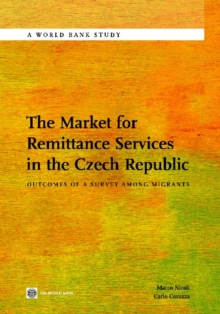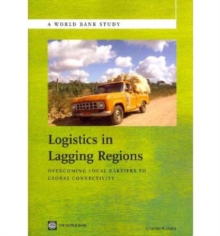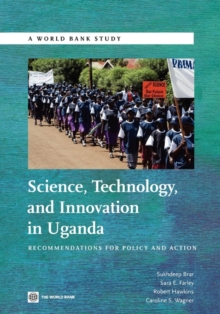
Lessons learned from World Bank education management information system operations : portfolio review, 1998-2014 Paperback / softback
by Husein Abdul-Hamid, World Bank, Namrata Saraogi
Part of the World Bank studies series
Paperback / softback
Description
Lessons Learned from World Bank Education Management Information System Operations provides an overview of the World Bank's portfolio in the area of Education Management Information Systems (EMISs) over the course of 17 years, from 1998 to 2014.
It seeks to identify overall trends and characteristics of World Bank support in this area, with the intent of informing future project preparation and analytical work.
The portfolio review revealed that although several good practices were evident, operational performance of EMIS activities fell short of expectations, with widespread deficiencies that ranged from unclear definitions and understanding of the EMIS to ineffective implementation and utilisation.
Examples of successful activities include the development of an EMIS to manage teachers and provide access to education (for example, Afghanistan); utilisation of an EMIS as a management tool (for example, Bosnia and Herzegovina); creation of an online EMIS to improve access to education data (for example, Honduras); use of an EMIS to strengthen teaching and learning (for example, Guatemala and Lithuania); and use of an EMIS as a management tool for schools (for example, Malaysia).
These success stories highlight how a well-implemented EMIS can improve the performance of an education system.
The challenges that have been identified as contributing to the shortcomings are related to the following: (i) Misalignment of activities and unrealistic EMIS goals; (ii) Institutionalisation of the EMIS; (iii) Sustainability challenges resulting from inconsistent leadership; (iv) Missed integration opportunities; (v) Private players in education; (vi) EMIS at the local level Future projects could benefit from the SABER (Systems Approach for Better Education Results)-EMIS Assessment Framework.
The SABER-EMIS Framework focuses on the need for a strong enabling environment, system soundness, quality data, and effective utilization as the key factors essential for the successful implementation of an EMIS.
Initial needs assessment of a country's EMIS can play a critical role i n benchmarking countries and provide a valuable foundation for the design of new projects.
Information
-
Item not Available
- Format:Paperback / softback
- Pages:158 pages, col. figs, tables
- Publisher:World Bank Publications
- Publication Date:30/04/2017
- Category:
- ISBN:9781464810565
Information
-
Item not Available
- Format:Paperback / softback
- Pages:158 pages, col. figs, tables
- Publisher:World Bank Publications
- Publication Date:30/04/2017
- Category:
- ISBN:9781464810565










